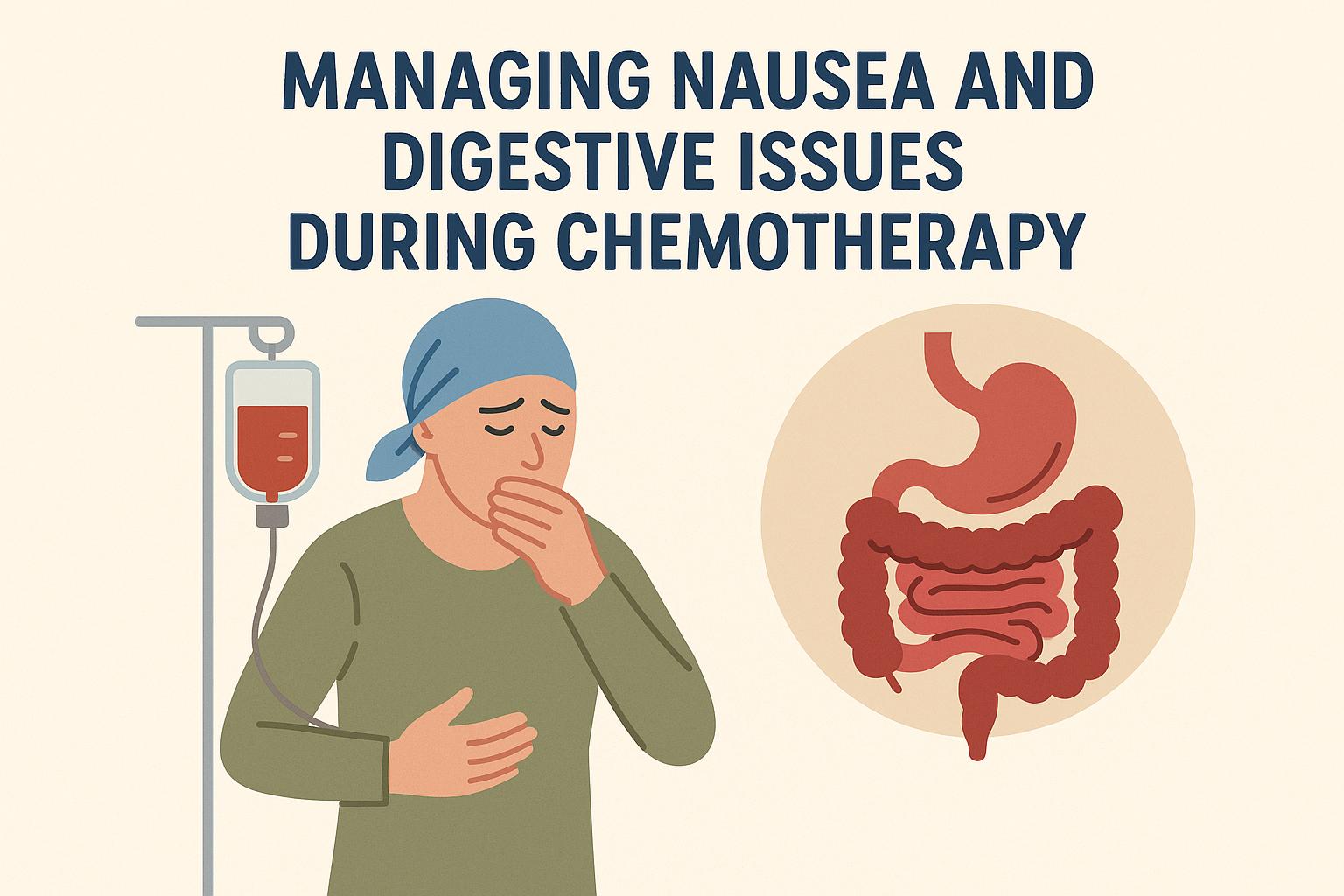Understanding the Causes
Experiencing nausea and digestive issues is a common side effect during chemotherapy. Chemotherapy targets rapidly dividing cancer cells, but it can also affect other rapidly dividing cells in the body, including those in the gastrointestinal tract. This can lead to discomfort and nausea.
The Biological Impact of Chemotherapy
Chemotherapy is designed to target and destroy rapidly dividing cancer cells, utilizing various mechanisms to disrupt their life cycle. However, this characteristic is not exclusive to cancer cells. The human body contains several types of cells that also divide rapidly, particularly those lining the gastrointestinal tract. As such, the impact of chemotherapy is not limited to cancerous cells alone. The implications of chemotherapy on the digestive system can manifest as a range of gastrointestinal disturbances, primarily nausea, and is regarded as an inevitable collateral damage of this treatment. This underlines the importance of understanding not just the physiological mechanisms but also the necessity of supportive measures to ameliorate these side effects.
Role of Medications
Certain medications used in chemotherapy can trigger nausea as a side effect. Anti-nausea drugs, or antiemetics, are often prescribed to help manage these symptoms. It is important to communicate with your healthcare provider about the effectiveness of these medications, as adjustments may be necessary to better control nausea.
Understanding Antiemetic Options
Antiemetics come in various forms and classes, each operating through different mechanisms in the body to prevent or treat nausea and vomiting. Some common types include serotonin receptor antagonists, neurokinin-1 receptor antagonists, corticosteroids, and benzodiazepines. The choice of antiemetic is often tailored to the specific chemotherapy regimen and the individual’s response. Understanding the broad spectrum of these medications is a crucial step in cooperating with healthcare providers to achieve optimal control over nausea during chemotherapy.
Dietary Adjustments
Modifying your diet can be an effective way to manage digestive issues during chemotherapy. Here are some recommendations:
Eating Patterns
Instead of three large meals, aim for smaller, more frequent meals throughout the day. This approach can be easier on your digestive system and help to reduce nausea.
Adapting Meal Timing
The timing of meals can significantly influence digestive comfort. Consuming food before chemotherapy sessions, rather than on an empty stomach, may help mitigate nausea. Additionally, avoiding eating right before bedtime allows the body sufficient time to digest, potentially reducing the risk of nighttime nausea.
Food Choices
Opt for bland, easy-to-digest foods such as rice, bananas, and applesauce. High-fat, spicy, or fried foods may exacerbate nausea and should be limited. Keeping a food diary can help identify specific foods that trigger or alleviate nausea.
Incorporating Nutritious Foods
In addition to choosing bland foods, integrating a variety of nutrient-rich options can support overall health during treatment. Foods high in protein, such as lean meats, fish, or tofu, can be beneficial. Additionally, incorporating small amounts of ginger, which has natural anti-nausea properties, or peppermint tea, known for its soothing effects, can enhance meal plans.
Hydration
Maintaining proper hydration is crucial during chemotherapy, as dehydration can worsen nausea. Sip on clear fluids such as water, broth, or herbal teas throughout the day. If plain water is unappealing, consider flavored or carbonated options. You can read more about hydration by visiting American Cancer Society’s guide on hydration.
Fluid Intake Considerations
Staying hydrated involves more than just drinking water. Hydration encompasses a balance of electrolytes and water. Broths and rehydration solutions can replenish electrolyte levels. Monitoring fluid intake becomes even more crucial when experiencing vomiting or diarrhea, as these can accelerate dehydration. Discussing appropriate hydration strategies with healthcare providers ensures personalized and effective hydration management.
Behavioral Strategies
Relaxation Techniques
Stress and anxiety can contribute to nausea. Techniques such as deep breathing, meditation, or gentle yoga can help manage stress levels during treatment.
Exploring Mindfulness Practices
Mindfulness practices, such as progressive muscle relaxation or visualization, can remediate stress and contribute to a balanced mind-body connection. Setting aside dedicated time each day for mindfulness activities not only empowers patients with self-care tools but also encourages a sense of control over their emotional and physical states.
Acupuncture and Acupressure
Some patients find relief from nausea through complementary therapies like acupuncture or acupressure. It is advised to consult with a professional who is knowledgeable in treating cancer patients.
Evaluating Complementary Therapies
While the effectiveness of complementary therapies can vary between individuals, credible studies have illustrated their efficacy in alleviating chemotherapy-induced nausea for some patients. Engaging with experienced practitioners, alongside informed discussions with healthcare providers, can provide insight into the potential benefits these therapies may offer.
When to Seek Medical Advice
If nausea and digestive issues persist or worsen, it is crucial to reach out to your healthcare team. Uncontrolled nausea can lead to weight loss, dehydration, and other complications. Early intervention can help manage symptoms more effectively and improve quality of life during chemotherapy.
Recognizing Warning Signs
Recognizing the progression of nausea beyond manageable levels can prevent complications. These may present themselves as intense abdominal pain, ongoing vomiting, or significant changes in weight. Promptly addressing these signs with healthcare teams can initiate necessary interventions to curb further health challenges.
For additional resources, consider visiting National Cancer Institute’s resources on nausea control.
Conclusion
Managing nausea and digestive issues during chemotherapy involves a combination of medical interventions, dietary changes, and behavioral strategies. Communication with healthcare providers and being proactive in managing symptoms can help improve overall comfort and treatment adherence.
Long-term Solutions
Establishing a working relationship with healthcare teams, coupled with proactive management strategies, forms the foundation of minimizing chemotherapy-induced nausea. Understanding and implementing these various approaches provide a comprehensive ability to overcome the challenges posed by such treatments. It represents a collaborative effort, empowering patients to adjust and adhere to their treatment paths with dignity and resilience.
This article was last updated on: October 9, 2025

